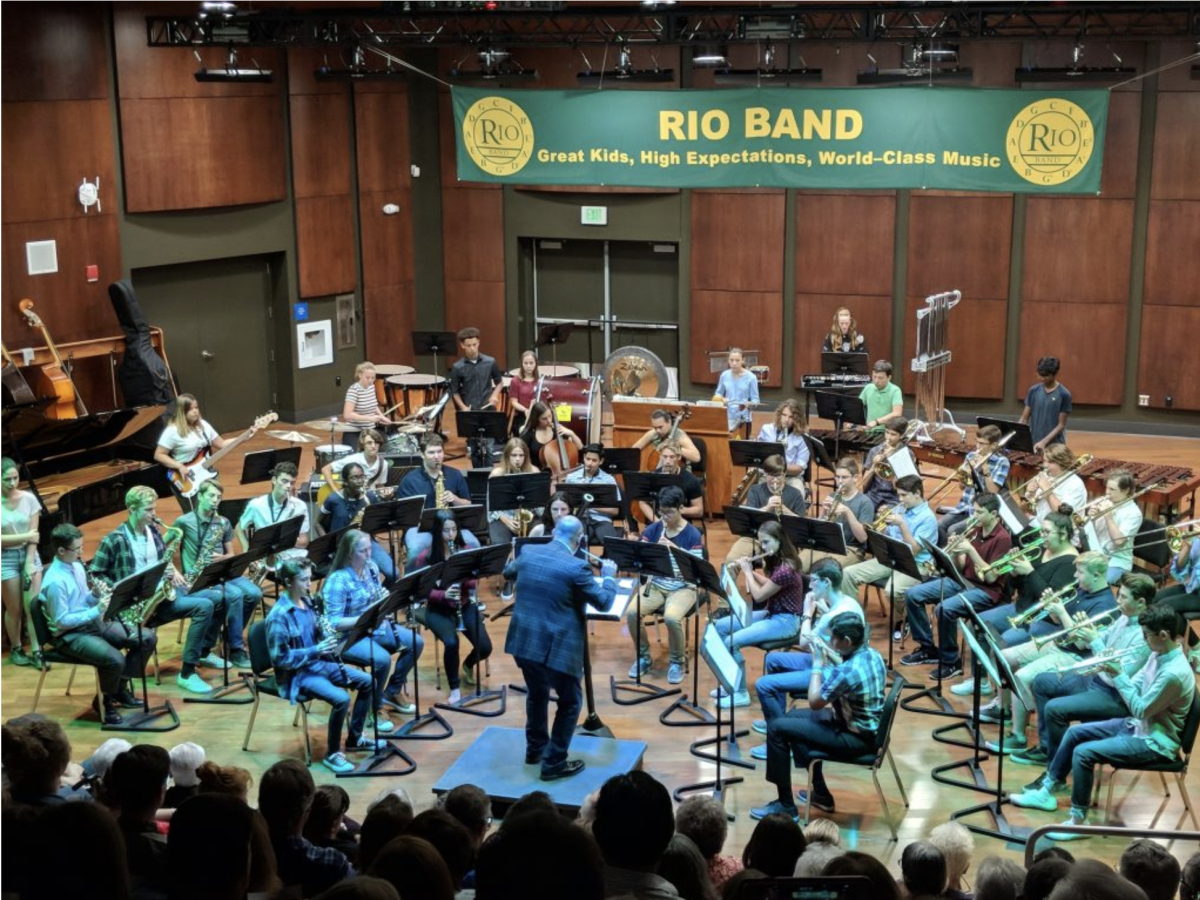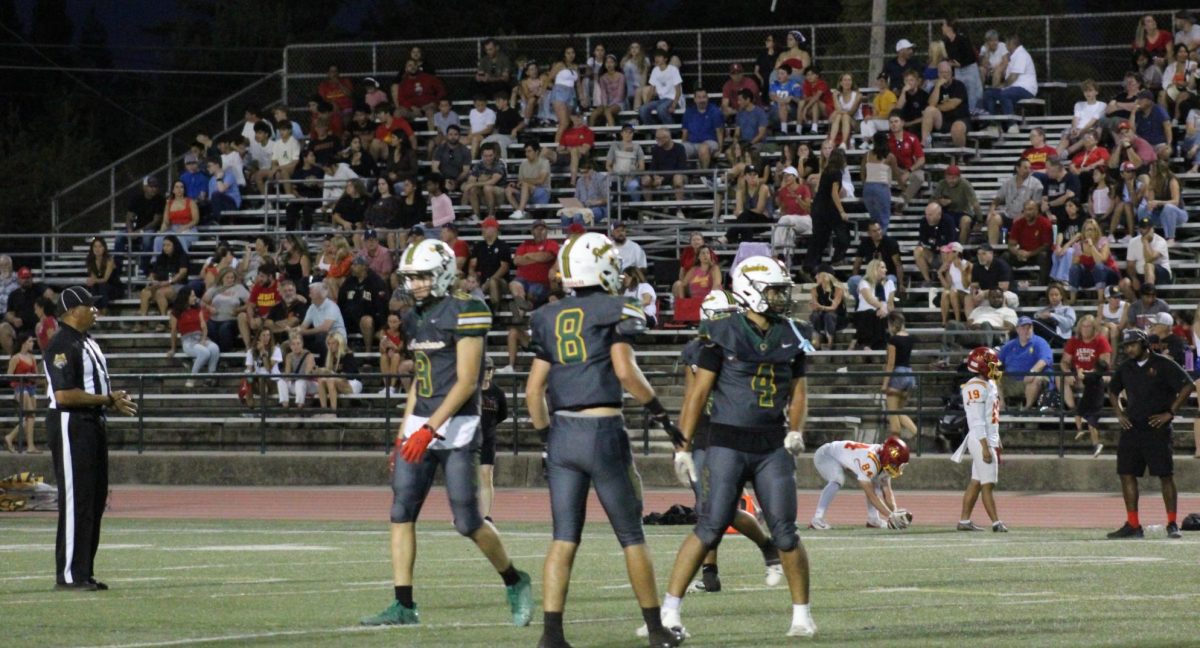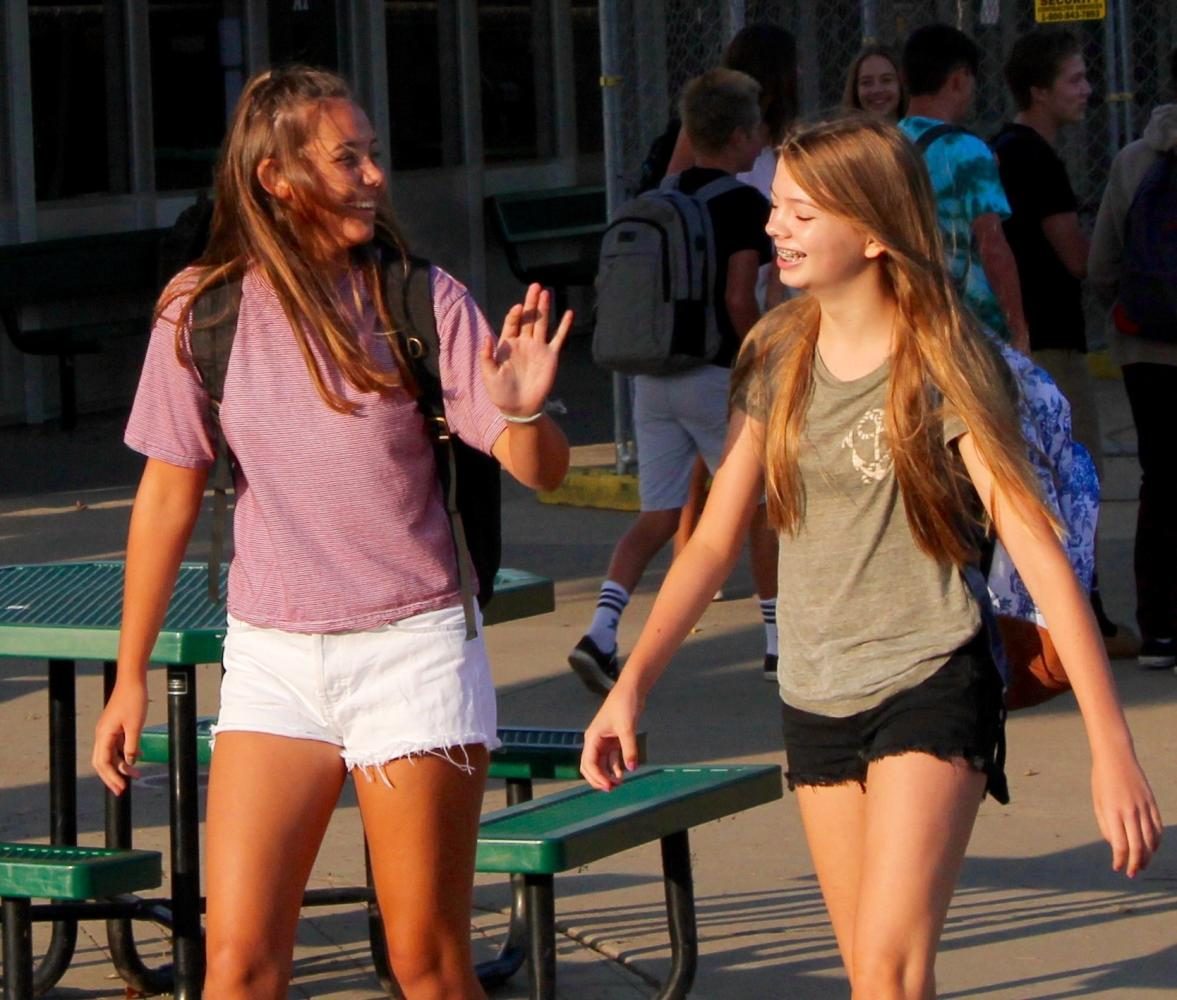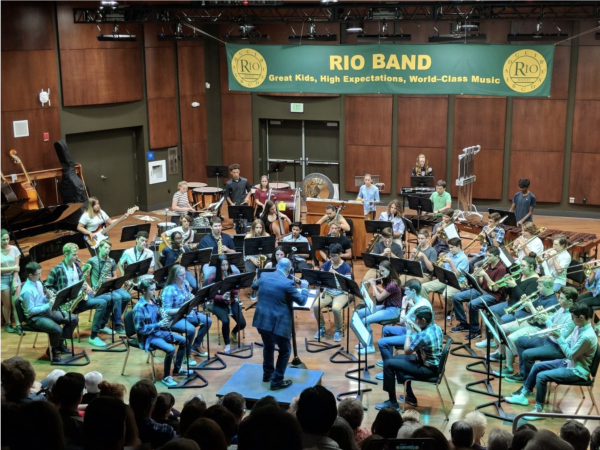Students Like 5-Minute Later Start Time
Photo By Ed Mahon
Students arrive to school at the new 7:55 start time on the first day.
The district has created a new measure to combat the early morning drowsiness that many high school students suffer from.
A start time that is later by only five minutes may not seem like a significant change, but it is expected that the first bell will ring even later in the coming years.
The time shift was implemented after significant research and discussion with communities, according to vice principal Robert Kerr.
After this year, the district board will evaluate the new schedule. The start time will continue to be pushed back in five minute chunks until the district’s evaluation finds the time change to be satisfactory.
The increment of five minutes was chosen for two main reasons.
“It’s making small incremental changes rather than one big one,” said Kerr. “It has less of an impact on families.”
According to a sample survey of 30 Rio students in grades 10-12, 22 students support the decision to start school five minutes later. Only one student opposed the measure, and the rest had no opinion.
Senior Morganne Collins appreciates the later start time, because it gives her extra time to bike to school.
“I can take my time and feel less rushed,” Collins said. “I get to catch my breath before class starts.”
This change has so far not impacted the time students wake up.
One hundred percent of students surveyed stated that the change does not affect the time they wake up.
“It’s nice for me, because I still leave at the same time,” said senior Cristina Chapa. “It gives me a cushion of extra time.”
This seems to be the agreed main benefit students are appreciative of, this extra five minutes before first period.
“I think it’s fantastic, because the chances of being late to school are shortened,” said junior Drew Jeffrey.
Besides the intention of diminishing impact on the families, a five minute change is also the maximum amount of minutes allowed for a teacher’s contract to change without union interference. Anything larger than this would affect the contracts and would require the involvement of the San Juan Teachers Association.
It is currently unclear how long these changes are planned to continue, but according to Kerr, the ultimate result could range in the school day starting 15 minutes later to 35 minutes or even longer.
Even though it’s unlikely that the start time will be pushed forward by more than five minutes per year, two thirds of the surveyed students said they’d prefer that the start time change would occur all at once.
School might start at 8:30 in a few years. Or it may remain at 7:55. All of it depends on the findings of the boards year-end review.




























